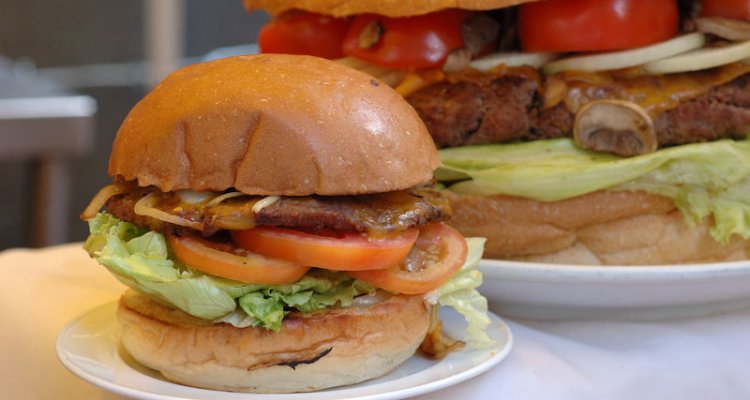
News
Kick-off ‘Ideal Burger’ successfully started with European students
The 'Ideal Burger' workshop of the Wageningen Youth Institute has successfully started on Wednesday, April 21, 2021. Via an online meeting, fifty high school students from five European countries (Spain, Czech Republic, Croatia, Sweden and the Netherlands) were informed about how to make a plant-based burger and how you can also sell these by using, for example, a commercial.
Kick-off
Wageningen Youth Institute coordinator Mirjam Troost led this introductory meeting and explained what is expected of the students. Marijn Verweij, associated with Wageningen Pre-University, gave additional tips on how to make the vegetable burger more tasty. In addition, two introductory lectures were given by Hanna van den Heuvel, MSc student Environmental Sciences, and Laura Kessels, double degree MSc Nutrition & Health and MSc Food Technology.
Introductory lecture Strategic Communication
The introductory lecture given by Hanna van den Heuvel was about how you can use communication to sell your product better. Hanna explained how communication works between two people, but also with large groups of people. It is especially important that you think about how your message will be interpreted by the recipient, because miscommunication can quickly come into play. In addition, Hanna also explained various weapons of influence that the high school students can use. These weapons respond to how we interact with each other as humans. For example, you can use the idea of scarcity. If something is only available for a short time, for example, we as humans are more likely to buy it as we don't like to miss out on something.
Introductory lecture Taste and structure of plant-based meat alternatives
Laura Kessels' introductory lecture focused on how a plant-based burger is actually made. Laura explained how machines are used in the vegetarian burger industry to give structure to a plant-based burger. This gives the plant-based burger more 'bite'. She also discussed the differences between meat and plant-based substitutes. One of the big differences between these two product groups is the carbohydrates. Meat does not naturally contain any carbohydrates, while a vegetable burger contains on average 15% carbohydrates. According to Laura, these carbohydrates act as a kind of sponge, so that a plant-based burger can give a drier mouthfeel when compared to meat.
What's next?
With the instructions and introductory lectures from this online meeting, it is now up to the high school students to make a plant-based burger in the coming three weeks. They also have to make a commercial, vlog, PowerPoint or online poster in which they promote their own plant-based burger.
The students have until Wednesday May 12 to create their plant-based burger and accompanying commercial. Then it is up to a jury to judge these advertisements. The students are challenged to set up a creative advertisement, because their plant-based burger itself is not judged by the jury.
Hanna and Laura are two of the four judges who will judge the commercials of the high school students. In addition, Atze Jan van der Groot, Professor at WUR, and Mendelt Tillema, founder of UmaMeats, also join the jury to judge the commercials. The finals and announcement of the winners will take place on Wednesday 19 May from 4:00 pm to 5:00 pm.
FutEUre Food
The participating students attend secondary schools that exchange within the FutEUre Food project. This is an innovative Erasmus + project with five different European schools:
- Insula College Locatie Halmaheiraplein, the Netherlands
- Aoiz I Sociedad Cooperativa (Liceo Monjardin), Spain
- Stredni odborna skola pro administrativu Evropske unie, Czech Republic
- Srednja skola Bedekovcina, Croatia
- Lundellska skolan, Sweden